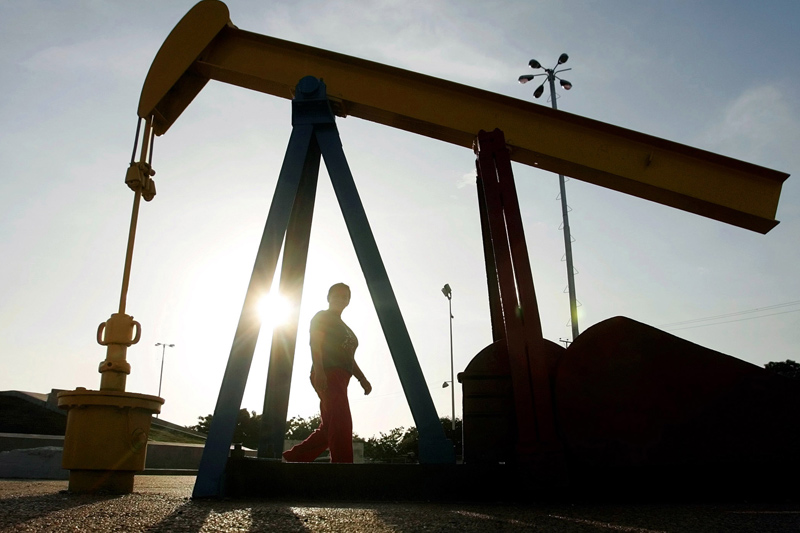Investing.com - Crude oil futures fell amid profit taking in Asian trading on Thursday as markets focused on a cooler global economy and sold the commodity, brushing off bullish sentiment the standoff between Iran and the West will escalate and threaten global supply.
On the New York Mercantile Exchange, light, sweet crude futures for delivery in August traded at USD86.88 a barrel on Tuesday, down 0.90%, off from a session high of USD87.04 and up from an earlier session low of USD86.72.
Oil rose in recent sessions on talk central banks around the world were set to stimulate their respective economies via monetary easing measures, which pump liquidity into financial systems to encourage more investing and economic activity.
As a side effect, some of that liquidity finds its way into commodities markets, which is bullish for oil.
Iran, meanwhile, has said it has successfully tested medium-range missiles capable of striking targets in Israel, which further pressured oil upwards on fears saber-rattling could lead to military actions that could cut off supply.
In the past, Iran has threatened to close the Strait of Hormuz, a narrow waterway connecting oil-rich Persian Gulf countries with the rest of the world, when tensions flared over the country's nuclear ambitions.
However, crude fell early Thursday on concerns that a global economy facing increasingly stronger headwinds will need less fuels to operate.
Meanwhile in Europe, where uncertainty surrounding the continent's debt crisis is threatening global recovery, service-sector data in the largest economy there fell short of expectations.
The German Services Purchasing Managers' Index fell to 49.9 in June, below expectations for 50.3, according to London-based Markit Economics.
A reading below 50 indicates a contracting sector.
On the ICE Futures Exchange, Brent oil futures for August delivery were up 0.20% and trading at USD99.92 a barrel, up USD13.04 from its U.S. counterpart.
On the New York Mercantile Exchange, light, sweet crude futures for delivery in August traded at USD86.88 a barrel on Tuesday, down 0.90%, off from a session high of USD87.04 and up from an earlier session low of USD86.72.
Oil rose in recent sessions on talk central banks around the world were set to stimulate their respective economies via monetary easing measures, which pump liquidity into financial systems to encourage more investing and economic activity.
As a side effect, some of that liquidity finds its way into commodities markets, which is bullish for oil.
Iran, meanwhile, has said it has successfully tested medium-range missiles capable of striking targets in Israel, which further pressured oil upwards on fears saber-rattling could lead to military actions that could cut off supply.
In the past, Iran has threatened to close the Strait of Hormuz, a narrow waterway connecting oil-rich Persian Gulf countries with the rest of the world, when tensions flared over the country's nuclear ambitions.
However, crude fell early Thursday on concerns that a global economy facing increasingly stronger headwinds will need less fuels to operate.
Meanwhile in Europe, where uncertainty surrounding the continent's debt crisis is threatening global recovery, service-sector data in the largest economy there fell short of expectations.
The German Services Purchasing Managers' Index fell to 49.9 in June, below expectations for 50.3, according to London-based Markit Economics.
A reading below 50 indicates a contracting sector.
On the ICE Futures Exchange, Brent oil futures for August delivery were up 0.20% and trading at USD99.92 a barrel, up USD13.04 from its U.S. counterpart.
